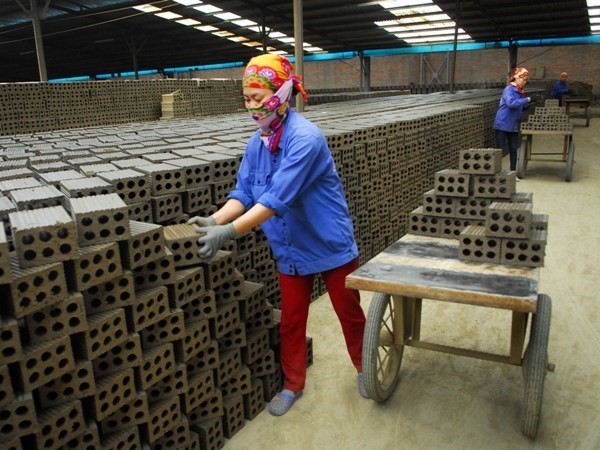Small, medium firms attract foreign investors
Since early February the ASEAN Deep Value Fund has been acquiring more shares of Hong Ha Vietnam Joint Stock Company (PHH) and Thanh Nam Investment and Construction Joint Stock Company (CSC).
 Illustrative image (Source: VNA)
Illustrative image (Source: VNA)Hanoi (VNA) - Since early February the ASEAN Deep Value Fund has been acquiring more shares of Hong Ha Vietnam Joint Stock Company (PHH) and Thanh Nam Investment and Construction Joint Stock Company (CSC). It now owns 10.9 percent and 13.9 percent of the businesses.
Also during this period America LLC increased its holdings in Ha Dong Urban Environment Joint Stock Company (MTH) and PetroVietnam Power Service Joint Stock Company (PPS) to 5.9 percent and 7.1 percent respectively by buying steadily.
Meanwhile, Cambodia-based Calavi International Investment owns 22 percent of VECO1 Electricity Construction Joint Stock Company (VE1).
FCN PYN Elite Fund (Non-Ucits) recently bought 287,860 shares of FECON to increase its holding in this company from 6.42 percent to 7.05 percent.
Andbanc Investments SIF has registered to buy 700,000 shares of Vietnam Fumigation Joint Stock Company (VFG) between February 19 and March 19. If the deal is successful, the fund will own 3.98 percent of VFG.
Interestingly, most of them are small- or mid-cap companies.
Analysts say foreign funds have been in a race to buy small- and mid-cap stocks since mid-2015 when many such shares were more volatile and liquid than many large-cap stocks.
Explaining the trend, securities analysts say foreign investors usually prefer stocks that have good potential rather than just large market caps.
Most of the businesses they have recently bought into have good business prospects.
Many small- and mid-sized stocks saw their prices rise by 50-150 percent last year.
PHH, for instance rose 2.5 times between March 31 and July, and VE1 by 57 percent.
Some analysts say small-cap stocks are often investors' favourites especially when the big caps like banks and property firms become less attractive and when there is little macro information to move the market.
Others say small- and mid-cap stocks are attractive to foreign investors because they are likely to have more opportunities to develop in future.
This is because many free trade agreements, specially the TPP, have already been signed by Vietnam, and this will help speed up reform making many domestic firms more capable of competing when the competition arrives.
They also say large caps have become less attractive to foreign investors since many are grappling with problems like bad debts in case of banks and a resource crunch in case of others.
These problems are expected to worsen in future because the State Bank of Vietnam plans to tighten lending to the real estate sector to preclude bad debts and check the huge credit flows into the property sector.-VNA













